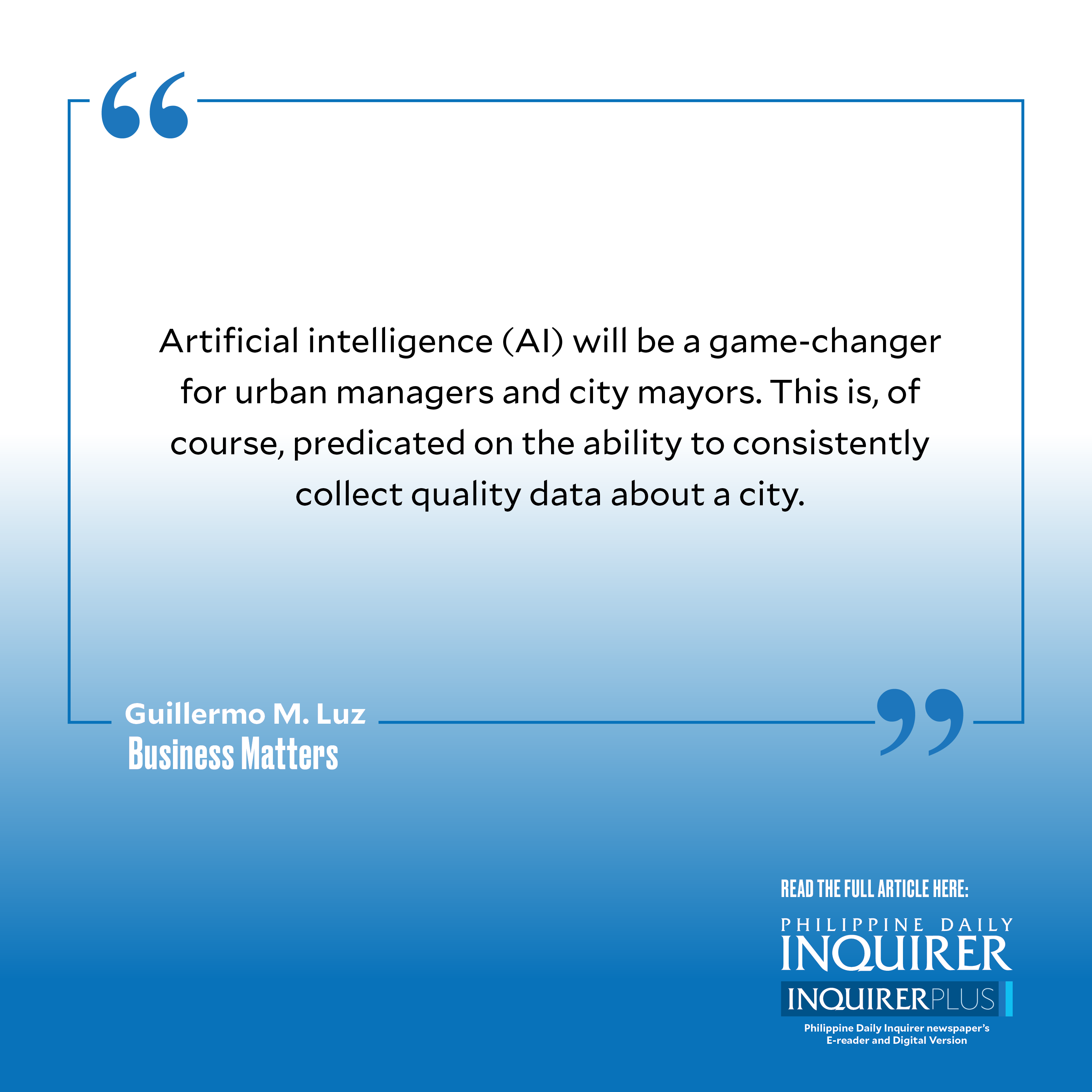‘Urban Connect’
We are pleased to announce that Liveable Cities Philippines will be joining the “Urban Connect” project. “Urban Connect” is a United States Agency for International Development (USAID) project which focuses on urban development and management in nine cities across the Philippines: Batangas City, Iloilo, Tagbilaran (Bohol), Cagayan de Oro, Zamboanga City, General Santos City, Puerto Princesa, Legazpi City, and Tacloban.
The project’s goal is to promote inclusive and resilient growth by enhancing local development and improving public service delivery. While it appears targeted at nine cities, in reality we are looking at their surrounding localities since these cities are like small metropolises whose impact stretches beyond their respective city limits. They are, in effect, growth hubs for their region or island.
Article continues after this advertisementThe first key result area we are targeting is to boost local economic development by improving the regulatory environment for private investment and enterprise growth. This will require strengthening local government coordination across departments and agencies as well as better connectivity.
The second key result area is to improve public service delivery by strengthening public financial management, advancing e-government solutions, and enhancing delivery of basic services such as in health and education.
The third key result area is to strengthen climate resilience and disaster preparedness and promote greater gender equality and social inclusion.
Article continues after this advertisementOver the next 15 months, Liveable Cities will team up with the Urban Connect team to conduct urban management workshops and to run LocalLabs in the nine cities. The urban management workshops will basically assemble a group of government and private sector experts to work with city officials to focus on specific issues to address. Over the last several months, the Urban Connect team has traveled to all nine cities to scope out and list the priority issues which each city wanted to tackle. Liveable Cities, in turn, will work with experts from companies and organizations like Globe Telecom, Geodata, Public-Private Partnership Center, and other partners to take in-depth looks at each priority area.
The Liveable Cities team will also join hands with USAID, League of Cities of the Philippines, and Globe plus other partners to run its LocalLab series in each city. These labs provide an opportunity for city mayors and local chambers of commerce to trumpet what their city is all about and what investment opportunities lie ahead. It also provides us a chance to bring in technical experts to propose how they might provide solutions to specific issues in each city. These labs will be managed in a hybrid format, with up to 100 persons in the live audience and a larger number tuning in on Zoom or Facebook.
We have run over 40 of these Labs, mostly in Metro Manila and focused on such themes as public health, education, e-commerce, mobility and transportation, disaster resilience, infrastructure, electric vehicles, public-private partnerships, government technology, intelligent cities, satellite imaging, and other topics. Each lab featured a panel of speakers which included city mayors and private sector experts.
Among all these labs, we’ve run two LocalLabs—for Batangas province and for Iloilo City. We have found that these LocalLabs have generated a great deal of interest and delivered different perspectives from our regular labs. Thus, we were happy to team up with Urban Connect to run a program through these nine cities. We have firmed up schedules for the first two cities—Zamboanga City for May 8 and Tagbilaran, Bohol, for June 5. Other dates for cities will be announced all the way out to March 2025 as schedules are firmed up.
Let me close by highlighting an exciting development for cities and municipalities regardless of size. It’s a development which our Urban Connect cities should certainly look at. Artificial intelligence (AI) will be a game-changer for urban managers and city mayors. This is, of course, predicated on the ability to consistently collect quality data about a city. We know of at least two cities—Baguio City and Cauayan (Isabela)—who have used AI to analyze their city’s problems and to design solutions. In the case of Cauayan, the project was started by its previous mayor, Bernard Dy, and continued by his successor Mayor Caesar “Jaycee” Dy Jr. In Baguio, their project was started by current mayor, Benjamin Magalong. Both cities have worked with the Asian Institute of Management’s graduate school of data science and AI, headed by professor Chris Monterola.
Both Cauayan and Baguio have already reaped some rewards from their early foray into AI. I would be surprised if more cities don’t jump into this opportunity in the next year.
—————-
Guillermo M. Luz ([email protected]) is chair of Liveable Cities Philippines.
—————-
Business Matters is a project of the Makati Business Club ([email protected]).
















